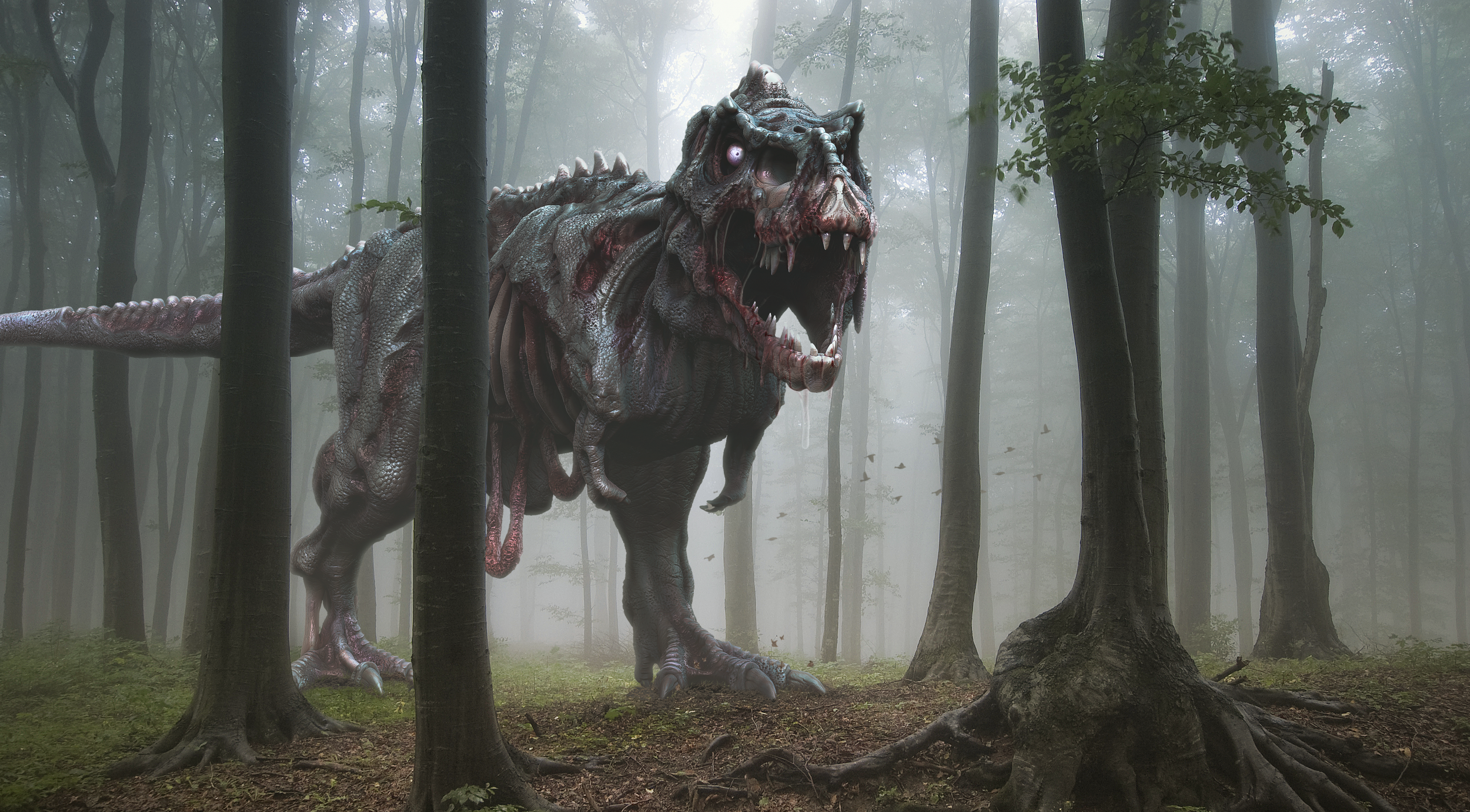
Paleontologists rarely find a complete skeleton from a prehistoric beast. Sometimes, they find only a skull, a tooth or a vertebra and have to make guesses about the creature based on minimal evidence. Where did the rest of the remains go?
It's not as if part of the beast died in one place and the rest died elsewhere. Scientists usually find only some of the remains because decomposition and scavenging can partially destroy them before they have a chance to fossilize.
New research from the University of Leicester and the University College Cork published in the journal Paleontology will help paleontologists understand the environmental factors that affected dinosaur carcasses before they left the fossils that scientists see and study today. Since you can't watch a dead nonbird dinosaur decompose anymore, the researchers observed the next best thing—modern animal carcasses.
"As soon as an organism dies, it starts to decay, and this process of decomposition inevitably involves changes in how features or body parts look," Sarah Gabbott from the University of Leicester said in a statement. "They may collapse, alter their shape or position; all too soon they liquefy and are eaten by bacteria until nothing remains."
The researchers obtained dead insects, hagfish, lampreys and other animals to watch them wither away. This research is similar to that done at "body farms," where anthropologists study dead human bodies under different conditions to compare with human bodies undergoing autopsies, so they can better determine what happened when they died.
For example, dry conditions and moisture-absorbing materials can help mummify a carcass, including the skin. Scavengers can tear at bodies they find, bringing a leg with them to chew on and leaving the rest behind. However, fossilization is a comparatively rare event, and often animals decompose completely before nature has a chance to preserve them.
Uncommon Knowledge
Newsweek is committed to challenging conventional wisdom and finding connections in the search for common ground.
Newsweek is committed to challenging conventional wisdom and finding connections in the search for common ground.
About the writer
Kristin is a science journalist in New York who has lived in DC, Boston, LA, and the SF Bay Area. ... Read more
To read how Newsweek uses AI as a newsroom tool, Click here.








